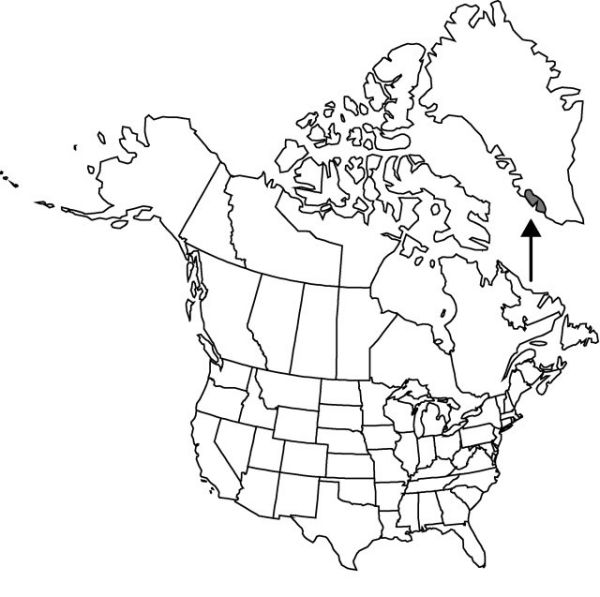Difference between revisions of "Sisyrinchium groenlandicum"
Bot. Tidsskr. 61: 286, figs. 3a, e–i, 5–7. 1966.
FNA>Volume Importer |
FNA>Volume Importer |
Revision as of 21:44, 16 December 2019
Herbs, perennial, cespitose, green to olive or dark olive when dry, to 3.3 dm, not glaucous; rhizomes scarcely discernable. Stems simple, often with purplish tinge apically, 1–2 mm wide, glabrous, margins entire, similar in color and texture to stem body. Leaf blades glabrous, bases not persistent in fibrous tufts. Inflorescences borne singly; spathes tinged purplish, at least on hyaline margins, glabrous, keels entire; outer 25.4–44 mm, 10.9–23.3 mm longer than inner, usually tapering evenly towards apex, margins basally connate 1–2.5 mm; inner with keel evenly curved to straight, hyaline margins 0.3–0.6 mm wide, apex acute to acuminate, ending 0.3–1.6 mm proximal to green apex. Flowers: tepals pale blue to whitish, bases yellow; outer tepals 5.7–10.3 mm, apex rounded, aristate; filaments connate ± entirely, glabrous or slightly stipitate-glandular basally; ovary similar in color to foliage. Capsules dark brown to black, slightly turbinate to subglobose, 2.8–6.5 mm; pedicel usually ascending. Seeds globose to obconic, lacking obvious depression, 0.7–1.2 mm, granular. 2n = 32.
Phenology: Flowering summer.
Habitat: Southerly exposures in steppe/heath vegetation
Elevation: 30–300 m
Discussion
Selected References
None.
